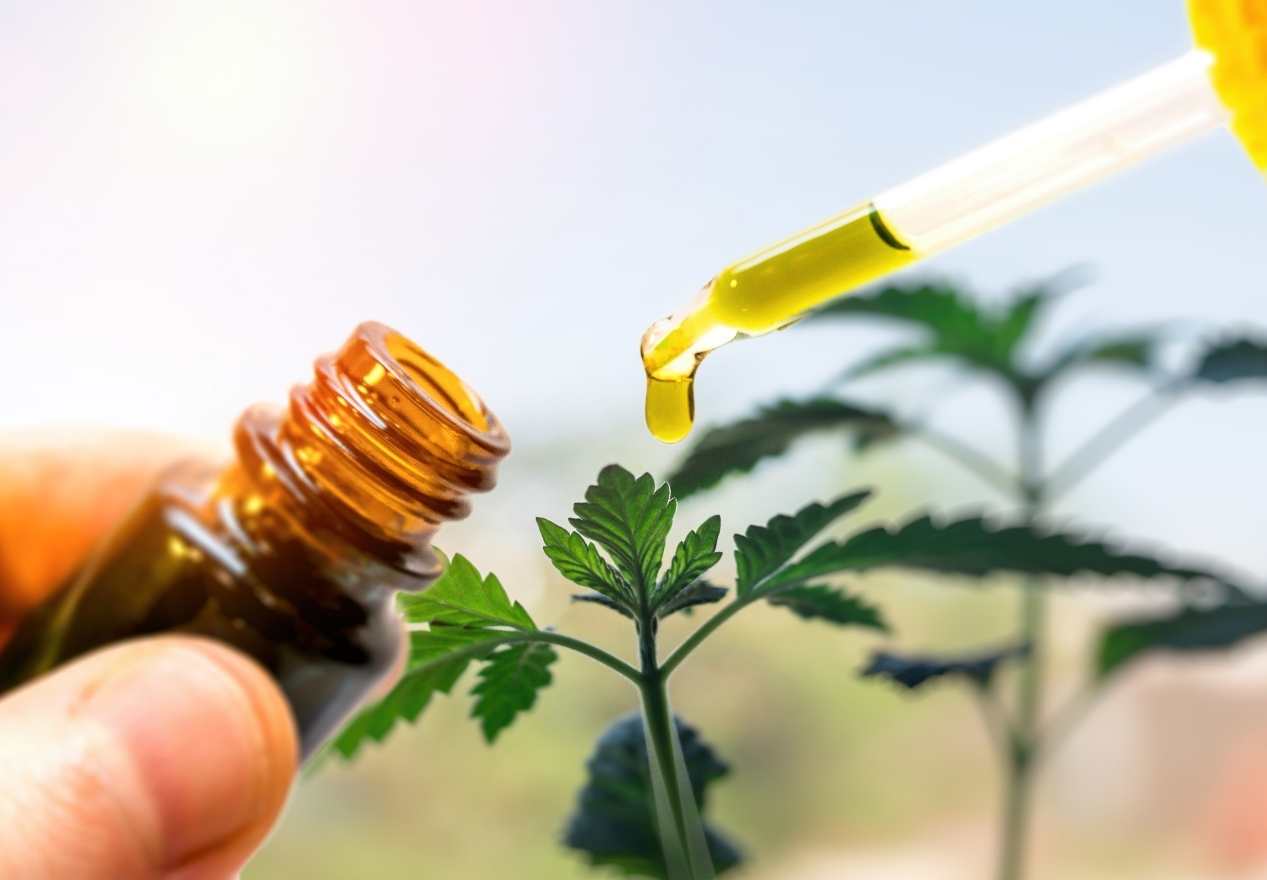Cannabis is a plant that has been used for medicinal purposes for thousands of years.
It was not until recently, however, that we realized the potential for cannabis to help with inflammatory bowel disease.
What is CBD?
Cannabidiol, also known as CBD, is derived from the hemp plant which is a cousin of the marijuana plant. While CBD is a component of marijuana, by itself it does not cause a high because it does not activate the same regions in the brain as THC.
CBD works by interacting with our body’s endocannabinoid system which is a regulatory system made up of naturally occurring cannabis-like molecules. These endocannabinoids work like neurotransmitters, sending messages through the body to help maintain homeostasis. (Kosecki, 2019) CBD interacts with these receptors, triggering positive effects.
Though more research is needed, scientists believe that CBD encourages the body to produce more of its own endocannabinoids, which may help reduced anxiety, pain, and inflammation. According to the WHO organization,
“In humans, CBD exhibits no effects indicative of any abuse or dependence potential…. To date, there is no evidence of public health related problems associated with the use of pure CBD.”
organization, 2017
If that is the case, and CBD truly does help with anxiety, pain and inflammation, more people will likely want to replace their medications that have harsh side effects for CBD.
What is IBS?
IBS or irritable bowel syndrome is a common disorder that affects the large intestine.
Only a small number of people with IBS have severe enough signs and symptoms to realize they need to be tested. Others have more mild symptoms that they suffer with over their lifetime before realizing they have the condition.
Some of the signs and symptoms include:
- Cramping
- Abdominal pain
- Bloating
- Gas
- Diarrhea or constipation
- Mucus in the stool
IBS is a chronic condition that will need to be managed long term.
IBS does not cause changes in the bowel tissue or increase your risk of colorectal cancer.
It can be caused by:
- Muscle contractions in the intestine that are either too strong causing gas, bloating and diarrhea or are too weak causing slow food passage and hard dry stools.
- Abnormalities in the nervous system of your digestive system may cause you to experience greater than normal discomfort when your abdomen stretches from gas or stool.
- Severe infections can cause IBS to develop from the bacteria in the virus causing a surplus of bacteria overgrowth.
- Changes in gut microbes like with bacteria, fungi, and viruses and when there are drastic changes our health suffers.
Symptoms of IBS can be triggered by food and stress.
How can CBD help with IBS?
An IBS friendly diet and avoiding stress as much as possible is the most effective method in reducing IBS symptoms.
However, CBD has been shown to help with symptoms during flare-ups.
Digestive systems
Studies have shown that there are cannabinoid receptors in our stomachs along with all over the rest of our bodies and because of that CBD seems to help in easing uncomfortable digestive symptoms like gas and bloating.
Inflammation
Studies have also shown that cannabinoids have anti-inflammatory qualities that would be good at managing the inflammation in the bowels from IBS.
What form of CBD is helpful for IBS?
There is currently no research that specifies what form of CBD product is best for IBS.
However, its likely that ingesting CBD in the form of oil or gummies works better then applying CBD through products like topicals and creams.
COAs
A COA is a certificate of Analysis and is one of the most important documents that you need to be able to distinguish between a high-quality CBD product you can trust and one that comes from questionable sources.
There are also different types of CBD, medical grade and over the counter.
Medical grade CBD is a full-spectrum hemp extract with a high concentration of cannabidiol (CBD). It also contains terpenes and other micronutrients, and, in most cases, they have MCT (medium-chain triglyceride) as the carrier oil. (We The People Hemp, 2019)
Over-the-counter CBD is still derived from the hemp plant but does not contain as high of a concentration and cannot contain any form of THC.
In a nutshell- Medical-grade CBD products have a higher level of quality and concentration than over the counter CBD and over-the-counter CBD products are not regulated. Therefore, you truly do not know what is in them or how much CBD they contain.
For over-the-counter CBD products look for the COAs and make sure you are purchasing it from a trusted source.
In conclusion, if you suffer from IBS, CBD may help with your symptoms.
The natural compound helps to decrease inflammation and stress in the body, which can both lead to a reduction of pain or discomfort.
However, CBD is not for everyone! Because it’s still considered an experimental drug by the FDA, there are many side effects that have been reported including fatigue and nausea. We recommend consulting your doctor before using any product to reduce medical symptoms.





No Comments